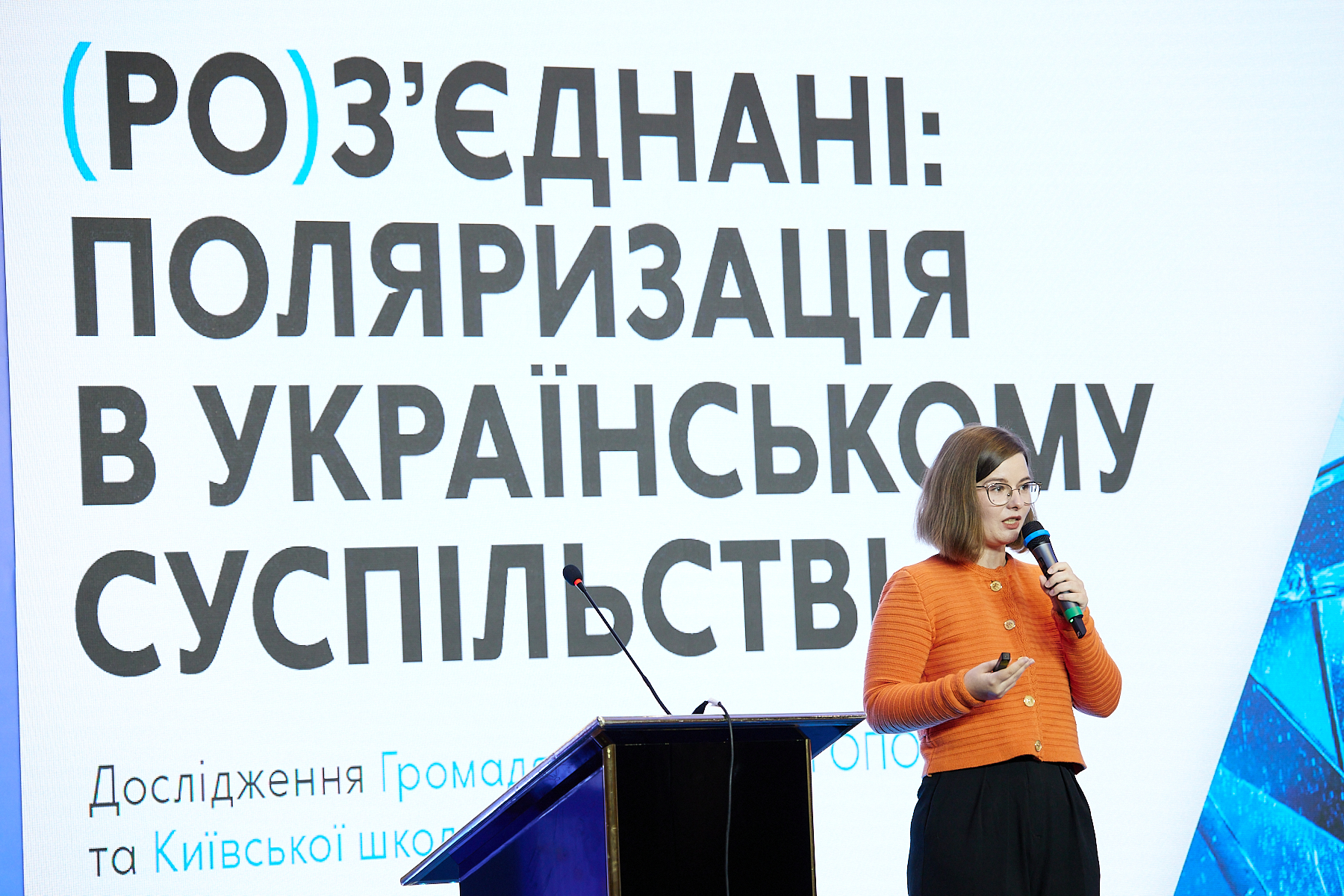
(Photo: Civil Network OPORA)
Is there tension between Ukrainians who left the country and those who stayed? What unites and divides those on the frontlines and those supporting from the home front? Do members of different religious organizations feel animosity towards each other? Researchers from the Civil Network OPORA and the Kyiv School of Economics with support of the United States Agency for International Development (USAID) sought answers to these provocative questions. Recently, they presented the research (Dis)Connected: Rethinking Societal Resilience in Ukraine, which sheds light on maintaining unity in a polarized Ukrainian society and dispels some common myths.
The researchers found no substantial differences in attitudes between Ukrainians living in the country and abroad. Similarly, there was no significant social distance between those who lived in temporarily occupied territories or combat zones and those without such experience. The most noticeable differences in attitude researchers found between members of religious communities influenced by political discussions about banning the Ukrainian Orthodox Church of the Moscow Patriarchate. Additionally, around one-third of respondents feel that their views differ from the majority. But in what ways?
Find out more in the research, now available at ISAR Ednannia's Analytical Library, an innovative online platform with analytical materials, research, reports, and guidelines on various fields related to civil society development in Ukraine. The Analytical Library supports civil society organizations, researchers, and activists and provides access to up-to-date data and tools to enhance the impact and effectiveness of their work.
